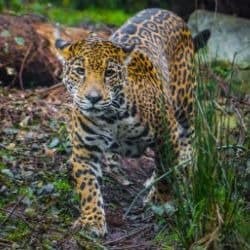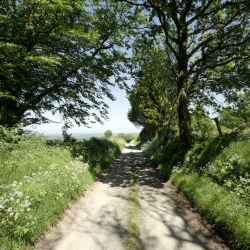Proposed Jaguar Corridor To Ensure Genetic Diversity

In the America’s jaguars and humans have coexisted for millennia with many cultures continuing to celebrate the elusive predator. Whilst the jaguar is the largest cat in the Americas and the third largest of all the big cats, its size and charisma have unfortunately not been able to keep it protected from the impact of human encroachment throughout its range which stretches from Argentina, into central America and then the American Southwest.
Human encroachment
There are thousands of jaguars roaming this expansive territory, nevertheless the population continues to fall in many key areas as a result of agricultural development, highway construction as well as other human pressures which have resulted in a fragmented habitat. Astonishingly despite all the barriers, the jaguar has managed to maintain genetic connectivity across its entire range. The big cat continues to be regarded as a single species irrespective of whether one is spotted in Brazil or Arizona.
Isolation will result in loss of breeding
As the jaguar becomes increasingly isolated into single territories and cut of from close by populations, its ability to breed freely will be lost. That is the whole reason behind the establishment of an ambitious project known as the Jaguar Corridor Initiative. The proposal is to create a transnational network of links between separate jaguar territories that run through protected park habitats as well as privately owned land, plantations and ranches.
Ensuring a unified species
The goal of the project is to maintain the openness of the gene flow so that the unified species does not subdivide into inbred species which could result in endangerment or even local extinction. Howard Quigley who is Executive Director of the Jaguar Program for Panthera says the mandate is two-fold, the first is to secure core populations and the second is to figure out a way to get jaguars through areas dominated by human populations. The second goal is difficult because Panthera will have to work with local communities to ensure jaguars have routes to travel through in unprotected areas that are privately owned.
Farmers are on board
In most of the world, farmers tend to be hostile to predators who may pose a threat to their livestock. Panthera is finding that most of the landholders it has begun discussions with seem open to coexisting with jaguars and are cooperating. This is not to say everyone is in love with the idea, there are plenty of diverse opinions ranging from sworn enemies to absolute jaguar lovers, however in general, the ranchers seem to have come on board with the idea. The people working on developing the corridor hope that not only will the decline in jaguar numbers be reversed but the project will also act as a model for conservation of apex predators globally that can be replicated for other species worldwide.



